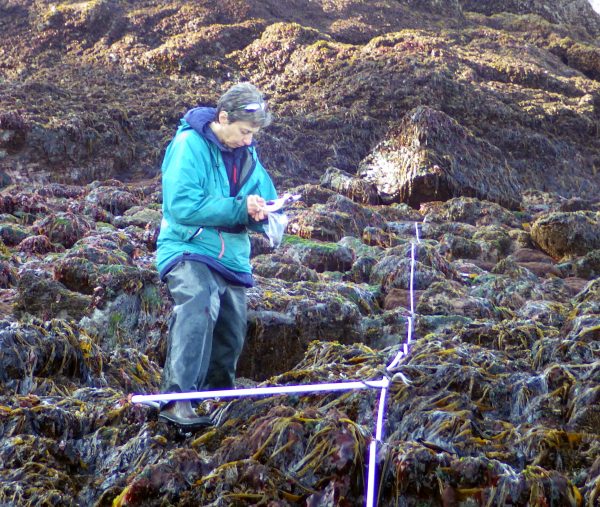NSF awards $20 million to fund 'Fire and Ice' project
September 19, 2018
Tom Moran
907-474-5581

The award will support "Fire and Ice: Navigating Variability in Boreal Wildfire Regimes and Subarctic Coastal Ecosystems," a five-year research project by the Alaska Established Program to Stimulate Competitive Research, also know as EPSCoR, which is administered by the University of Alaska Fairbanks.
Fire and Ice researchers will use remote sensing, fieldwork, lab experiments and modeling to study two Alaska regions undergoing climate-driven changes: the boreal forest, where wildfire patterns are changing, and the Gulf of Alaska, where changing physical and chemical conditions are affecting nearshore marine ecosystems and organisms.
“Together, the boreal forest and the margins of the Gulf of Alaska contain most of Alaska’s population and enormous amounts of natural resources,” noted University of Alaska Fairbanks Provost Anupma Prakash, who serves as the project director. “We need to understand how the forces of change are impacting them so we can contribute to sound management policies in the future.”
The project will involve more than 30 faculty members at UAF, the University of Alaska Anchorage and the University of Alaska Southeast. In addition, the project will hire five new faculty members and six postdoctoral researchers, and provide 44 graduate and 45 undergraduate research assistantships. Researchers in the study come from a variety of disciplines in the physical, biological and social sciences.
“I congratulate the leadership team and all of the researchers on receiving funding for this project,” said University of Alaska President James Johnsen. “I look forward to seeing the outcome of this high-quality interdisciplinary research conducted across Alaska to address the impacts of climate change on Alaska and the circum-Arctic region.”
Fire and Ice consists of two major research components, a boreal fires group and a coastal margins group.
Boreal fires researchers will identify large-scale climate drivers relevant to fire weather; use remote sensing to better map and measure fuel condition and active fire behavior; and research the economics of fire management and the effects of fire on subsistence communities.
Coastal margins researchers will assess impacts of large-scale ocean drivers on the nearshore marine environment; establish how the composition and productivity of nearshore biological communities vary; determine how organisms’ physiological responses to physical drivers vary; and study fishers’ and organizations’ responses to changes in availability of key marine species.
In addition to research efforts, a diversity, education and workforce development component will partner with research teams to involve more than 1,500 Alaskans in Fire and Ice activities, including K-12 programs and teacher workshops; scientific expeditions for high-school girls; and UA mentoring, courses and trainings. Scientists will also conduct research into science identity formation in first-generation college students, who will be a focus of Fire and Ice diversity efforts, along with women and Alaska Natives.
Other project leads include Uma Bhatt, chair of the UAF Department of Atmospheric Sciences and a researcher with the UAF Geophysical Institute, who will co-lead the boreal fires group; Brenda Konar, associate dean of research and administration at the UAF College of Fisheries and Ocean Sciences, who will co-lead the coastal margins group; LeeAnn Munk, professor of geological sciences at UAA; and Allison Bidlack, director of the Alaska Coastal Rainforest Center at UAS. Pips Veazey of UAF will serve as associate project director. Todd Brinkman, UAF assistant professor of wildlife biology, and Anne Beaudreau, UAF associate professor of fisheries in Juneau, will serve as the other co-leads for the boreal fires and coastal margins teams.
The award comes through the National Science Foundation's national EPSCoR program, which was established by Congress to support research in areas of the country that have traditionally received relatively small amounts of federal research funding. Twenty-six states and territories now receive or are eligible for EPSCoR funds. The award is one of seven $20 million Track 1 awards announced by the NSF, including awards to Delaware, Idaho, Mississippi, Montana, New Hampshire and New Mexico.
ON THE WEB: Visit http://bit.ly/2p8AjAv and www.alaska.edu/epscor.
ADDITIONAL CONTACTS: Pips Veazey, adveazey@alaska.edu, 907-474-5989. Anupma Prakash, aprakash@alaska.edu, 907-474-7096. Rob Margetta, rmargett@nsf.gov, 703-292-2663


